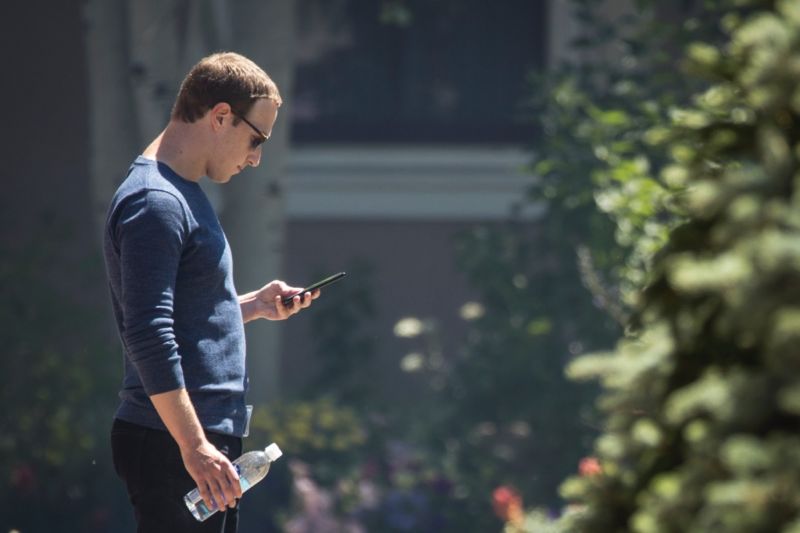Facebook’s cryptocurrency might work like loyalty points

If Facebook’s pivot from town square to private living room wasn’t laden with enough irony, here’s a new twist: Big business, it appears, has been invited to join us by the fireplace.
On Thursday, The Wall Street Journal reported new potential details about Facebook’s long-awaited cryptocurrency plans. The company is reportedly seeking dozens of business partners, including online merchants and financial firms, in an effort to extend the reach of its blockchain-based marketplace. Facebook’s would-be partners are being asked to pitch into an investment fund, valued at $1 billion or more, that would serve as backing for Facebook’s coin and mitigate the wild speculative swings that make cryptocurrencies like bitcoin hard to spend. The pitch, according to the Journal, involves offering merchants lower fees than credit cards.
Some were quick to note that this would reduce Facebook’s ability to make money from payments in the short term. But that may not matter much—if, in the end, Facebook’s crypto effort is really all about getting you to spend more time glued to Facebook.

Facebook appears to be already building out the plumbing to make its marketplace a reality. At its F8 developer conference last week, the word “blockchain” was notably absent. But even as Zuckerberg emphasized the company’s plan to reorganize your Facebook experience around intimate relationships, his update included plenty of ways money would be involved. “I believe that it should be as easy to send money to someone as it is to send a photo,” he said, alluding to “simple and secure payments” as a core feature of his privacy-forward vision. That apparently extends beyond the peer-to-peer payments available on Venmo and Facebook’s own Messenger app. In a series of keynotes, Facebook execs touted a litany of commerce-focused improvements: better checkout for Instagram’s digital mall, donation stickers, and a new tool for small business owners to list items on WhatsApp.
Indeed, WhatsApp appears to sit at the center of Facebook’s commerce efforts—at least to start. At F8, Facebook said WhatsApp Pay, currently on limited trial in India, would expand to additional, unnamed countries later this year. The platform isn’t blockchain-based (for now) and is designed for peer-to-peer payments. But with 80 percent of small businesses in India using WhatsApp to market their goods, some form of payments processing is a natural evolution. In December, Bloomberg reported that the first tests of the crypto coin may occur in India, initially as a way for workers to send money home from overseas.
An added twist from the Journal’s report is the possibility that the coin will be integrated into Facebook’s lucrative ads ecosystem. The scheme, reportedly still under debate within Facebook, would potentially work on both sides of the ads equation: Merchants could use the coins to pay for ads, and users would be rewarded in coins for viewing or interacting with them. That reflects a growing perception—seen recently in efforts like the Brave browser, which compensates users through a token for clicking on ads—that people should get paid for their attention, not simply help internet giants make money. For Facebook, it also presents a vision of how its ads and eyeballs-driven business could continue in the company’s supposedly privacy-first era. The idea is to keep Facebook’s coins—and therefore users—tightly enmeshed in the platform.
“I don’t believe they’re doing anything that isn’t in the service of increasing interactions on their platforms,” says Joshua Gans, a professor at the University of Toronto. Sending money to businesses presents a challenge, he notes. Compared with friends and family, businesses are more likely to dump their Facebook coins at the end of the month in favor of real money. Gans is skeptical that Facebook would pay users for viewing ads—an immensely tricky system to create—unless it involved something like a rebate for buying a product through a Facebook advertisement. On the merchant side, encouraging businesses to pay for ads and services on Facebook with the coin could be one way of staunching the flow of money out of the system.
As the Journal notes, Facebook’s foray into blockchain could look a bit like a loyalty-points system—tokens that can be earned through and spent on Facebook services, or cashed out elsewhere though partner merchants. That’s not without precedent among technology companies: Uber, for example, has Uber Cash, which rewards users for purchases both in and out of Uber with app-specific money. Gans notes offerings like the Apple Card hold a similar purpose: It’s a service that, for all the talk of disrupting the credit card industry, is mostly a shiny, heavy way to buy more of Apple’s apps and products.
A Facebook spokesperson reiterated an earlier comment: “Like many other companies, Facebook is exploring ways to leverage the power of blockchain technology. This new small team is exploring many different applications.”
Facebook still faces many challenges, from sorting out how it will oversee the system to assuaging the privacy concerns of users to determining how to funnel money in and out of its currency—a process that, for other cryptocurrencies, is typically handled by exchanges. It also has to contend with the realities of the global economic system, which runs on euros and yen as well as dollars. Even if it backs the currency with a basket of currencies, as reported, it “can’t be stable with every currency in the world,” says Gans. “That’s not how the world works.” Hence the need to enlist financial partners to smooth transactions in and out of Facebook’s system.
Bottom line: It’s very unclear how this will work in practice. “There are a lot of moving parts. Facebook doesn’t always do what we expect,” says Gans.
This story originally appeared on wired.com.
https://arstechnica.com/?p=1500363